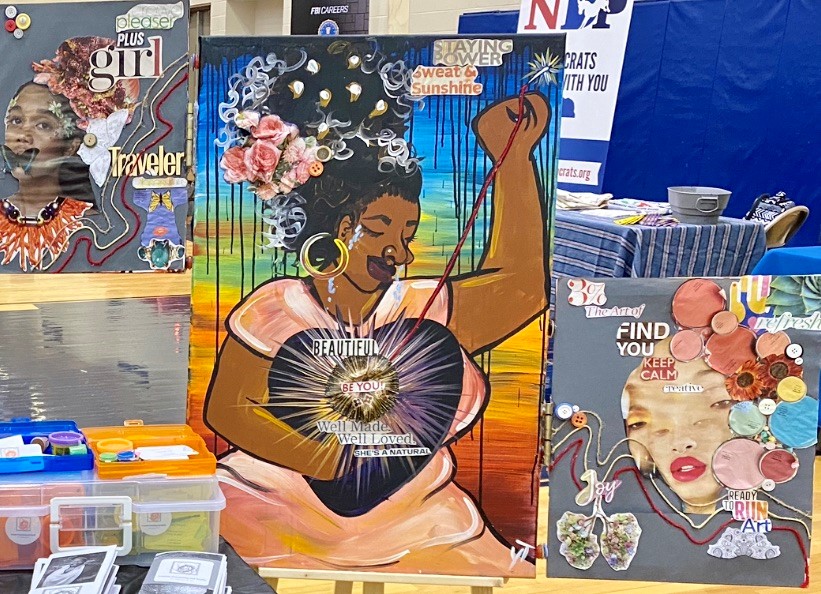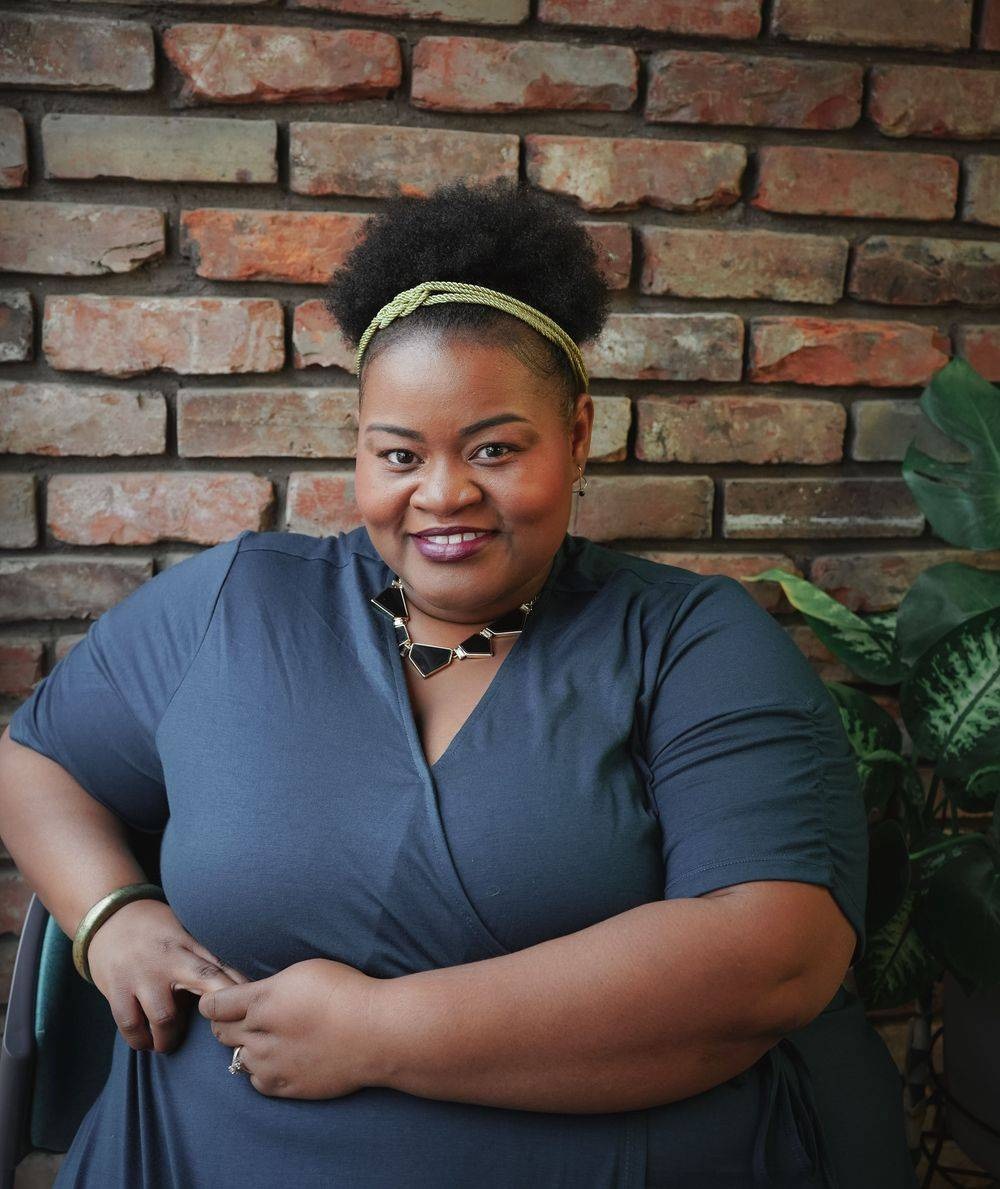In this Featured Member series, AATA celebrates the work of our members. During the coronavirus epidemic, we are inviting members to share their experiences about how their professional and personal lives have changed.
April 9, 2020
What has changed (or remained the same) in your job during the COVID-19 global crisis?
The global crisis has impacted my private practice in many ways. In a typical week, I hold 15-20 individual, family and couples’ sessions. Following the national recommendation to shelter in place, I am providing a few less sessions from home via two telehealth platforms. In addition to this, I am facilitating an eating disorder art therapy group with four or more clients at once on Zoom. From the moment I decided to shift my entire practice online, I have experienced a sharp learning curve in communicating with clients in HIPAA compliant ways. In addition to negotiating space for my practice, family and person time all within the same four walls. It has been difficult, but I feel blessed to have had little interruption in my service to others and income.
How are you juggling adjusted schedules and new work from home/living spaces?
With the support of my husband, who is also working from home in corporate IT, we are managing our new realities as parents, partners and professionals. The COIVD-19 response is similar to my time in Milwaukee from 2012-2015 finishing my graduate studies at Mount Mary University. My husband and I assess our current resources, creatively problem solve and give each other grace through the transition period. My two small children are enjoying the increased mom and dad time. It is new, but for sure a win for our family.
In what ways have your clients been impacted by this crisis? Have you been able to continue care? How are you managing your own stress related to their experiences?
Many of my clients have been forced to apply for unemployment due to the closure of many companies in Omaha. My teens and children are coping with 8-12 weeks of school closures causing interruptions in their social-emotional learning, academic progress, school events, etc. For some of my clients, the global pandemic has increased social isolation, exacerbating their depression and anxiety symptoms. To meet the evolving needs of my clients, I have maintained a high level of communication with them via teleconferencing, email and text.
For therapy sessions, I have leaned into my first language as a creative artist. I have encouraged my clients to find materials all around them to visually explore their issues. I recently reviewed my materials and media syllabus with Dr. Chris Belkofer from Mount Mary and facilitated a group using HeroMachine to engage a telehealth art therapy group.
For many of my sessions within my office, I allow the 55 minutes to evolve naturally. Making a variety of art materials available based on the client’s affective presentation and clinical need. For telehealth, I have to plan ahead. I spend significantly more time preparing examples of artwork and remain flexible during the session as clients are often at home. Luckily art therapy lends itself to numerous interpretations, inviting freedom and innovation. It has been a challenge and I have learn so much in my three weeks of full time telehealth services.
How do you view your role as an art therapist during this crisis?
My role as a mental health provider during this crisis is to continue to be an anchored support for my clients in these times of uncertainty. My role is to continue to provide my clients the same quality of care and confidentiality as I do in face to face sessions. In addition, my role is to invite clients to play, explore imagine and even distract through the use of art. One important thing for my clients is the predictability of our telehealth sessions. For many of my clients, their out of pocket costs have been waived at this time so they are arriving to their sessions eager to discuss their daily living. They know at their scheduled time, I will be there on the other side ready to support and maintain their healing process.
Is there anything else you would like to share with the community during these uncertain times?
Remember to show yourself grace in the next few months and keep on keeping on, art therapists! We make the world of difference in our clients’ lives. Those 45 to 55-minute sessions may be all your client has to look forward to during this pandemic. You showing up is enough.

“Untitled” by Yasmin Tucker. Acrylic, magazine, yarn, paper and buttons on acrylic canvas. 2019.
Yasmin Tucker, ATR, LIMHP, LPC, PLADC
 Yasmin is a registered art therapist, licensed independent mental health practitioner, licensed professional counselor and provisionally licensed alcohol and drug counselor in the state of Nebraska. Yasmin is a child, teen and adult therapist who specializes in art therapy, EMDR, CPP, DBT, trauma-informed and multiculturally sensitive care. Yasmin has worked with individual children, adults, persons in recovery from substances, those with severe and persistent mental illnesses, parent-child dyads, families and couples. Yasmin has over 15 years of experience in social services and 5 years as a practicing therapist.
Yasmin is a registered art therapist, licensed independent mental health practitioner, licensed professional counselor and provisionally licensed alcohol and drug counselor in the state of Nebraska. Yasmin is a child, teen and adult therapist who specializes in art therapy, EMDR, CPP, DBT, trauma-informed and multiculturally sensitive care. Yasmin has worked with individual children, adults, persons in recovery from substances, those with severe and persistent mental illnesses, parent-child dyads, families and couples. Yasmin has over 15 years of experience in social services and 5 years as a practicing therapist.
Yasmin earned her Master of Science in Art Therapy Counseling from Mount Mary University in 2015. She practices as one of 21 art therapists in Nebraska. Yasmin is the Owner of Creative Counseling and Studio, LLC and an active member of the Nebraska Art Therapy Licensure Coalition advocating for art therapy licensure in Nebraska. Yasmin is also a former undergraduate art therapy professor at Concordia University in Seward, NE. She is a classically trained painter and specializes in art making as a tool for self-expression, innovation, renewal and growth.
